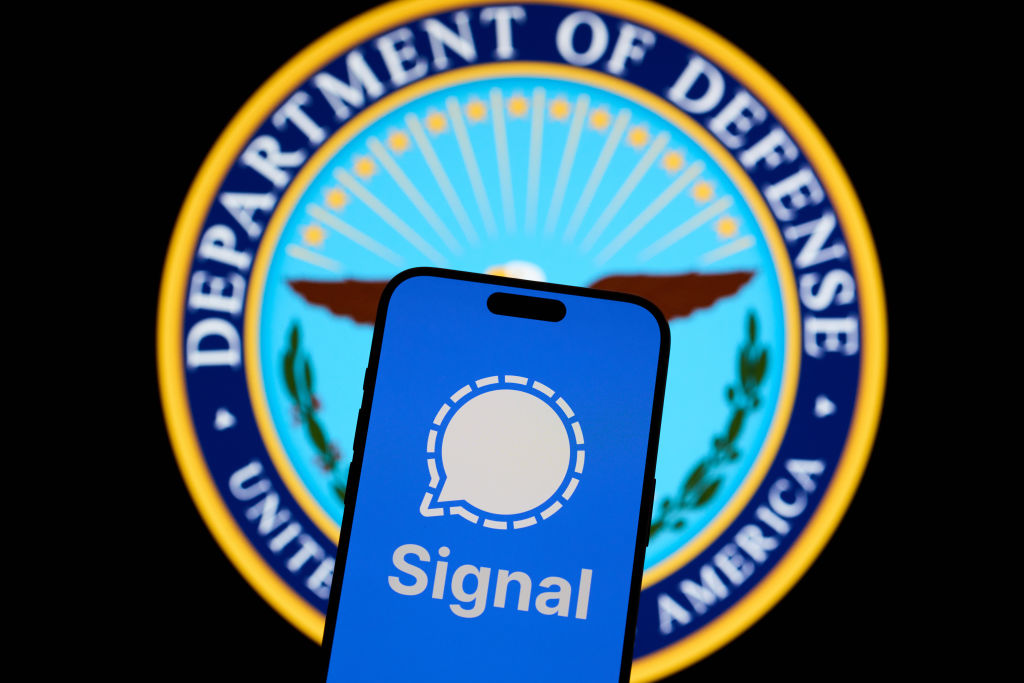On March 15, 2025, the U.S. bombed Houthi terrorist targets across Yemen. But two hours before the world knew, a Signal message had already mapped the strike. The sender? Secretary of Defense Pete Hegseth. The recipients? Top intelligence officials, but also Jeffrey Goldberg, editor-in-chief of The Atlantic — a journalist inadvertently folded into the highest levels of American military planning.
This wasn’t a clandestine leak. It was a raw, unfiltered display of the fragility of power in the digital age. It was a breach not orchestrated by a hostile foreign actor but self-inflicted — executed casually, almost thoughtlessly, by the nation’s top security officials on a consumer messaging app.
For those of us who approach these matters with a deep understanding of U.S. statecraft and a critical perspective shaped by intellectual and resistance traditions, the story may demand more than mere procedural outrage. It calls for an unflinching analysis of how an empire, when unmoored from accountability and experience, leaks not only data but legitimacy.
Way Too Casual For War
According to The Atlantic, the group on the Signal message, absurdly titled “Houthi PC small group,” included Vice President JD Vance, National Security Adviser Michael Waltz, Secretary of State Marco Rubio, CIA Director John Ratcliffe, and National Intelligence Director Tulsi Gabbard. Goldberg, a civilian journalist, was added to this closed loop message group and remained there unnoticed, even as strike timelines, weapon systems, and regional strategies were discussed openly.
The tone of the messages vacillated between bureaucratic coordination and ideological bravado. There were emojis. Prayer hands. Fire symbols. The group debated whether attacking now would harm public perception, drive up oil prices, or appear inconsistent with prior rhetoric. The secretary of defense argued for urgency — ironically citing the risk of a leak as a reason to accelerate the operation while leaking the operation to a journalist in real time himself.
Is This A Question Of Defense Secretary Pete Hegseth’s Resume
The fact that Defense Secretary Pete Hegseth sent the message is not incidental — it is central to this story. His nomination as defense secretary was met with alarm. An MSNBC op-ed notes Defense Secretary Pete Hegseth, though an Army National Guard veteran, lacks national security leadership experience; yet, he was elevated not through demonstrated capacity, but rather through media loyalty and ideological alignment. He was, to borrow language from another era, unqualified but committed to the cause.
The questions raised during his confirmation hearings have now resurfaced with clarity. Entrusting an inexperienced figure with control over one of the most potent military apparatuses in history — and allowing him access to unsecured, informal modes of communication — was not just an administrative failure. It was a systemic one.
Experts Warn of Broader Cybersecurity Consequences
Cybersecurity analysts and legal scholars are sounding alarms — not only because classified information was shared over an app not authorized for such communications but because messages in the group were set to auto-delete, potentially violating federal records laws. Under current statutes, all official government communications must be preserved unless explicitly exempt.
National security lawyers interviewed by The Atlantic warned that even if officials had the authority to declassify information, the use of Signal did not meet federal standards for secure communications. Moreover, sharing real-time operational plans on a platform that could be breached — or accessed through a stolen device — presents a threat scenario with far-reaching implications for both domestic defense and international diplomacy.
And the threat isn’t theoretical. Encrypted apps can still be compromised, especially on unsecured personal phones. If any of the officials’ devices had been lost or hacked, adversarial intelligence services could have accessed messages revealing the exact strike timing, command hierarchy, and geopolitical strategy.
Defense Secretary Pete Hegseth Sits At The Intersection Of Tech And State Power
What happened in that Signal thread was not merely a breach of protocol. It’s a wake-up call. It highlights how many U.S. institutions remain ill-prepared to adapt their decision-making to the pace and vulnerabilities of modern technology. The same tools that protect dissidents from authoritarian regimes can, when misused by state actors, become conduits for catastrophic leaks.
Congress is now investigating the matter. According to NPR, House and Senate intelligence committees, originally scheduled to focus on foreign threats, have widened their scope to examine how a journalist ended up on what amounted to a digital battlefield command thread. The hearings are expected to explore not only the mechanics of the breach but also the cultural attitudes toward security that allowed it to happen.


